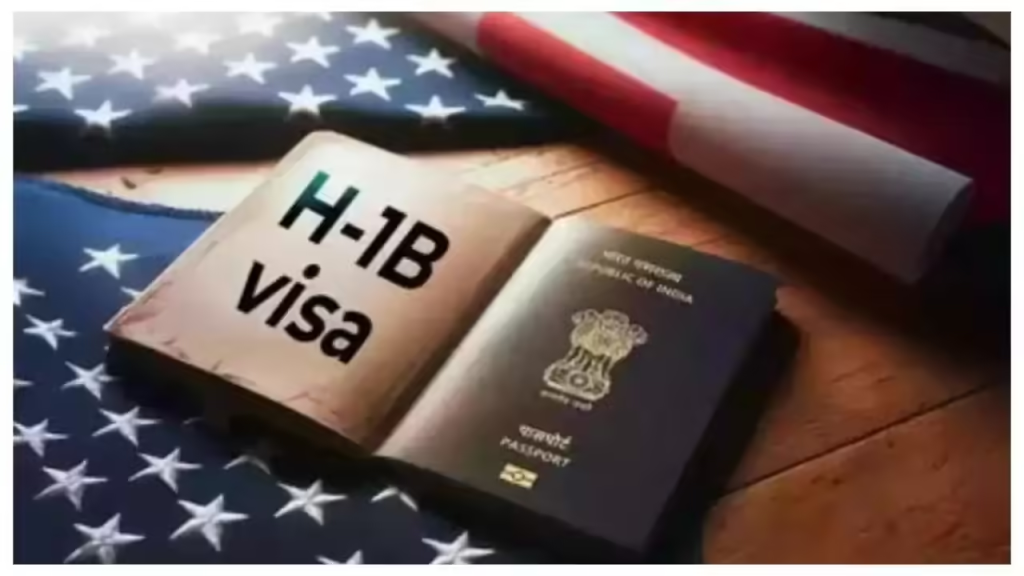Exclusive | H-1B Pushback: US Chamber Sues Govt, Says Fee Violates
News THE ECONOMIC TIMES, livelaw.in, LAW, LAWYERS NEAR ME, LAWYERS NEAR BY ME, LIVE LAW, THE TIMES OF INDIA, HINDUSTAN TIMES, the indian express, LIVE LAW .IN
Business lobby takes Trump admin to court over $100,000 H-1B visa levy, calling it unlawful and burdensome
Washington, October 17, 2025 – Friday
The U.S. Chamber of Commerce has filed a federal lawsuit challenging a newly imposed $100,000 fee on H-1B visa petitions, arguing the fee violates existing immigration law.
Under the Trump administration’s proclamation, employers seeking to sponsor new H-1B visa holders must pay this drastic surcharge. Earlier visa application costs ranged from a few thousand dollars.
According to the Chamber, this fee exceeds what Congress has authorized and conflicts with the Immigration and Nationality Act, which mandates that visa fees align with administrative processing costs.
What the Lawsuit Says
The suit, filed in the U.S. District Court for the District of Columbia, lists defendants including the Departments of Homeland Security and State, along with their secretaries
It argues that by imposing a flat $100,000 levy, the executive branch unlawfully bypassed statutory limits. The Chamber contends the president lacked authority to override legislative constraints on H-1B fee structure.
The lawsuit seeks injunctive relief to prevent enforcement of the fee and a judicial declaration that it is invalid.
The Policy Shift & Reactions
In September 2025, President Trump signed a proclamation instituting the $100,000 fee on new H-1B applications.
The White House later clarified that the fee would not apply to existing H-1B holders or renewal petitions.
Commerce Secretary Howard Lutnick said the administration had briefed “all the big companies” before the rollout.
Business and immigration stakeholders issued swift backlash. Many describe the fee as “disruptive,” “unlawful,” and likely to strain U.S. competitiveness for top global talent.
The administration defends the move as necessary to counter visa abuse and favor American workers, although critics argue the fee far exceeds any reasonable cost recovery.
Legal & Constitutional Fault Lines
Lawyers point out that immigration law already grants DHS discretion over admission of noncitizens, but not unchecked power to override fee structures imposed by Congress.
Fee overreach could clash with the nondelegation doctrine and the principle that Congress must authorize spending or revenue instruments.
To succeed, plaintiffs must show that the fee is not a genuine regulatory charge but an impermissible tax or burden outside the statutory scheme.
Judges may probe whether the executive’s rationale—balancing foreign labor and domestic job protection—justifies the fee under statutory limits.
Impact on Businesses & Workers
If enforced, the fee would dramatically raise the cost of hiring foreign skilled talent. Many firms argue they will scale back hiring or reduce reliance on H-1B visas.
Small and midsize companies may be hardest hit—they often operate with thinner margins and fewer resources to absorb such costs.
Immigration attorneys warn the fee could deter visa-seeking professionals from relocating, degrade U.S. talent recruitment, and chill academic, research, and tech growth.
Data shows a large share of existing H-1B workers come from India (≈70+ %) and technology sectors, raising geopolitical sensitivities.
Some firms, such as Microsoft, advised visa-holders to either stay put or return to the U.S. before the effective date to avoid travel and reentry complications.
Political Stakes & Equilibrium
By launching this fee, the Trump administration seeks to assert control over immigration flows, potentially appealing to the political base concerned with foreign labor’s impact on U.S. wages.
But pushing too far risks alienating business interests, especially major tech firms and multinational employers who rely on H-1B visas to fill critical skill gaps.
Members of the U.S. Chamber—representing hundreds of thousands of businesses—are now directly challenging executive prerogative in court. This is the Chamber’s first major lawsuit of the term.
If courts side with the Chamber, it would set a precedent reining in executive authority over immigration fees and potentially reshape future visa policy.
Source:
